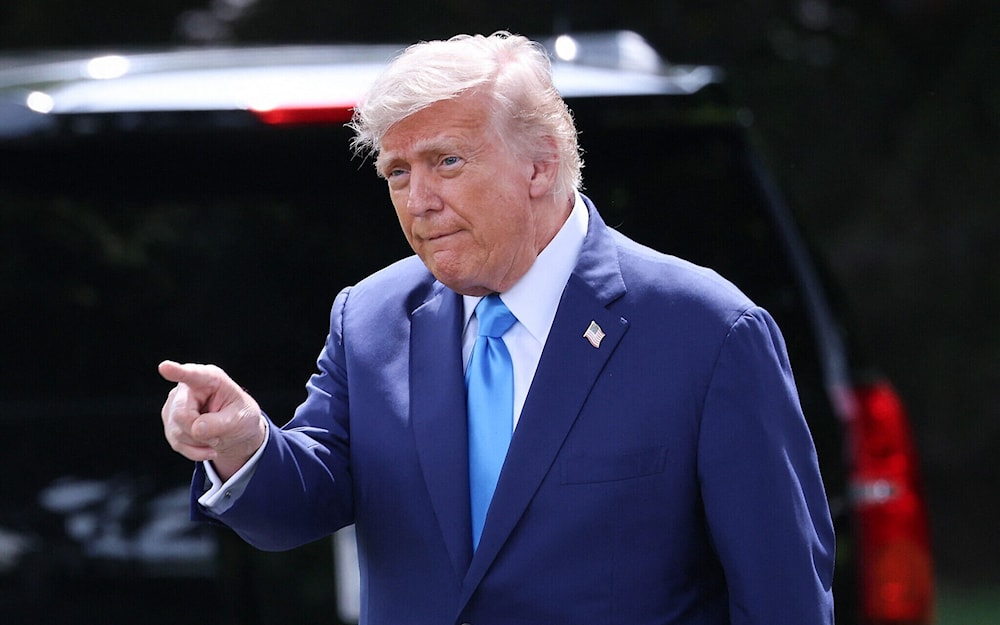Donald Trump’s record on ending wars: Fact vs. claim
Donald Trump claims to have ended seven wars, but closer examination shows many were temporary ceasefires, fragile peace deals, or disputes that were never full wars.
-

US President Donald Trump points to supporters as he departs the White House in Washington on June 6, 2025. (Win McNamee/Getty Images/AFP)
As US President Donald Trump seeks to highlight his role in global peace efforts, he has repeatedly claimed to have ended multiple wars during his second term. Speaking in Washington, Trump told European leaders he had “ended six wars,” later raising the figure to seven.
The Trump administration has even argued that it is “well past time” for him to receive a Nobel Peace Prize, citing a list of conflicts where US diplomacy allegedly brought hostilities to an end.
But BBC factcheckers say that many of the conflicts were short, unresolved, or not technically “wars,” raising questions about how much credit Trump can claim.
Trump emphasized that he did not need to use the word “ceasefire” in his negotiations. Yet, on multiple occasions, he publicly announced ceasefires via his Truth Social posts. Analysts note that some deals were little more than temporary pauses in violence rather than lasting resolutions.
Asia
Israel and Iran: ceasefire or temporary pause?
According to BBC, the June conflict between "Israel" and Iran lasted 12 days, ending after strikes by both Washington and Tel Aviv. Trump claimed credit for brokering its conclusion, declaring that the world had witnessed the “end to the 12-day war.”
But Iran insisted it had achieved a decisive victory, and experts say no permanent agreement was reached. Michael O’Hanlon of Brookings called it more a “de facto ceasefire” than true peace.
Read more: 'Israel' concealed damage inflicted by Iran in war, report finds
India and Pakistan: Mediation or existing channels?
After clashes in Kashmir in May, Trump announced that India and Pakistan had agreed to a “full and immediate ceasefire” thanks to his mediation. Pakistan praised his efforts, but Indian officials dismissed US involvement, saying the agreement had been reached through existing military channels.
Thailand and Cambodia: Trade pressure and ceasefire
Border clashes in July ended after both countries agreed to a ceasefire. Trump claimed credit, noting he had pressured them by threatening to halt tariff negotiations with the United States. However, the ceasefire was mediated primarily by Malaysia, not Washington.
Read more: Thai troops injured in landmine blast near Thailand-Cambodia border
Armenia and Azerbaijan: The Karabakh deal
Trump hosted leaders of Armenia and Azerbaijan at the White House, where they signed a peace deal in August. Observers say his personal involvement gave momentum to the process, though hostilities over Nagorno-Karabakh had largely subsided months earlier.
Africa
Rwanda and DR Congo: Fragile peace in central africa
Trump also highlighted his role in a June peace agreement signed in Washington between Rwanda and the Democratic Republic of Congo, following M23 rebel activity. While the deal called for respect for a ceasefire, both sides have since accused each other of violations. Fighting continues in eastern Congo, casting doubt on the durability of the agreement.
Egypt and Ethiopia: Dispute over the Nile
Trump also claimed credit for resolving tensions between Egypt and Ethiopia over the Grand Ethiopian Renaissance Dam. In reality, no final agreement has been reached, and Ethiopian officials accused his remarks of inflaming tensions.
Europe
Serbia and Kosovo: Not a war to end
Trump said he prevented a war between Serbia and Kosovo, claiming his intervention stopped an outbreak of fighting. However, analysts stress that the two were not at war at the time. Their economic normalization agreements in 2020, though symbolic, did not resolve long-standing disputes.
Read more: Serbia may join BRICS amid EU pressure over Kosovo ties: Deputy PM
While Donald Trump has framed himself as a global peacemaker, much of his record relies on fragile ceasefires, temporary pauses, or disputes that never escalated into full-scale war. Critics argue that his claims exaggerate the role of US diplomacy, even as some acknowledge that Washington’s involvement under Trump occasionally helped ease tensions.

 4 Min Read
4 Min Read










